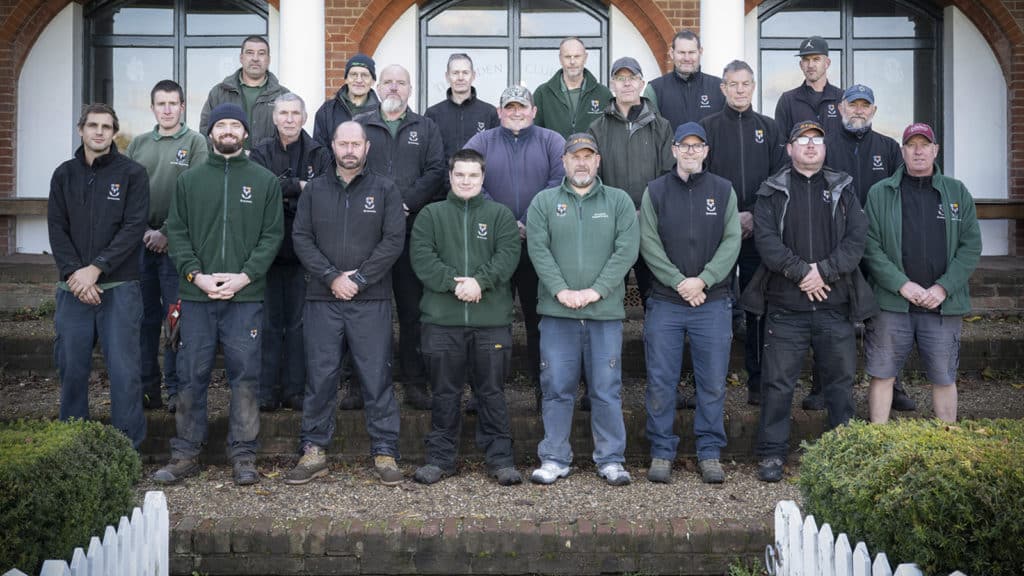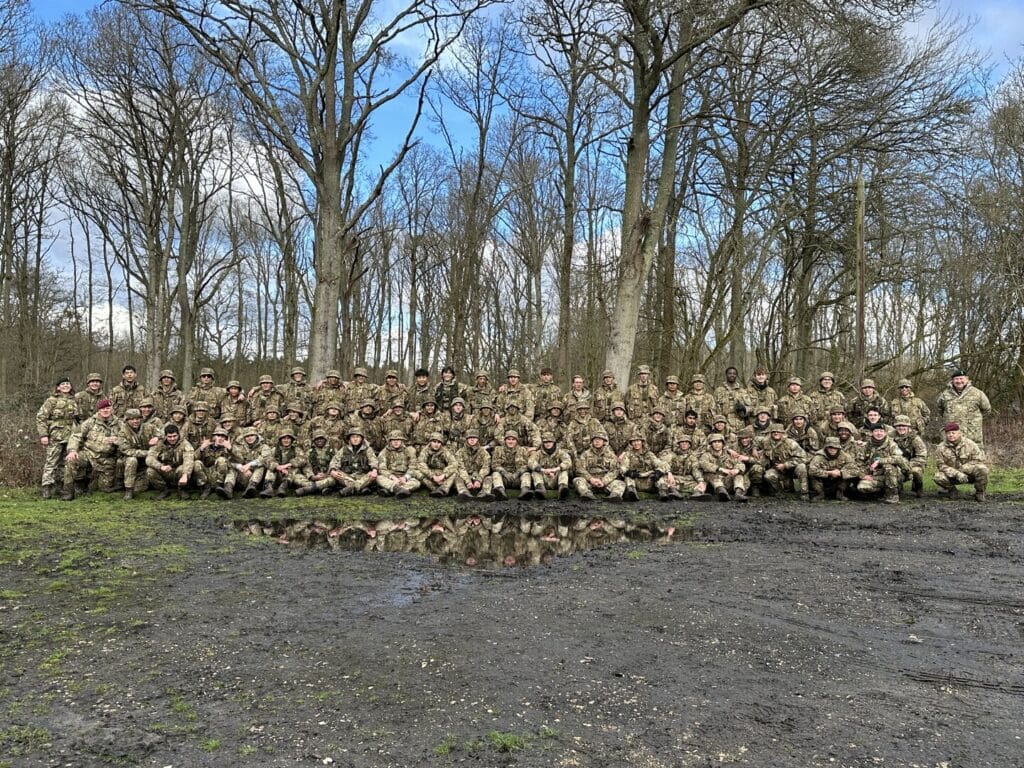Where are you from?
I grew up in Borehamwood in Hertfordshire and went to school in St Albans. I enjoyed the academic side, but I hated exams and never got the results I was expecting. I came to realise I’m more of a hands-on kind of guy. And I always enjoyed sport. I’m a lifelong fan of Tottenham Hotspur and now a season ticket holder.
So were you good at sport, then?
No! I wasn’t as good at football as I wanted to be. But I found ways to get involved because I loved it. I started refereeing when I was 14.
That’s quite a bold move for a teenager…
Yeah. You learn confidence quickly having that kind of authority over other boys. I worked my way up to become a Level 3 referee, running the line for the National Conference League. I did some quite high-profile games. FA Trophy semi-finals and quarter-finals. The FA Cup. I was flown out to Guernsey for a game. I did really enjoy it – being part of an event, feeling the energy from the fans. It was good fun and it’s good to have a focus.
And you found other ways to stay involved in sport?
Yes, I did a green keeping and turf management course at Oaklands College in St Albans. I saw there would be a long career in that and it would be a practical profession that I could take pride in. I quickly learned it’s quite unusual to come into this line of work without a family history. Most people I meet are doing it because their dads or brothers got into it first.
What was your first job?
I did a little bit of work experience at Tottenham Hotspur, which was obviously ideal for me. After that I was lucky enough to get a job at Harrow School, where I stayed from 2004-2016. Over the years I worked my way up from groundsman to Deputy Grounds Manager and finally Grounds Manager. From there, I moved to Charterhouse School in Godalming. Then I came to Eton College in 2020.

So you came to Eton in the middle of the pandemic?
Yes, the grounds were quiet! I’ve been in schools my whole career and I really like the environment.
What’s the appeal?
I like the variety of grounds that I maintain. I like the way I spend some of my day in the office but I can also get out on the tractor. Groundsmanship isn’t just about cutting grass and marking white lines. It’s not just about playing with flowers!
What is it about?
There’s a lot of soil science and agronomy involved now. I’m very interested in root development and how we can use different fertilisers or irrigation to encourage that. I’ve got a moisture meter that I can carry around with me to check how much water we need to use. We’re very data driven and we have to consider the environmental impact of every decision. Then you’ve got to be aware of the different ways that schools present themselves. Charterhouse was approached down a long, tree-lined driveway with fields either side, whereas Eton is in a town environment. A visitor’s first impression comes from how neatly you’ve cut the hedges. It’s a working school, so it needs to be functional. But it’s also a Royal Charter school, so it also has to live up to high standards. It has to look on point all year round.
How much variety is there in the land you oversee at Eton?
We have 38 winter sports pitches and 1,500 acres of land spanning the M4 all the way to our 2012 Olympic venue, Dorney Lake. You look after different pitches in different ways. For example, a cricket pitch is cut shorter than a football pitch and then rolled. We use different fertilisers on different pitches to get the highest possible standards. Presentation is key.
And you’ve got a large staff to manage?
Yes. I have a team of 30, which is split into three areas: playing fields, gardens and a landscape team. I’ve had to learn good communication skills and I make sure I take care of everyone working in the team.
What’s the best part about working with your grounds team?
I work with a team that cares and wants to do a good job. This makes my job easier, and a sense of pride that the team wants to look after the grounds and provide surfaces and green spaces for all to enjoy.
Toughest challenge?
The weather! Both in summer with lack of rain and in winter when extreme heavy rainfalls become more common, it makes it very difficult in preparing sports pitches and keeping them maintained to a high standard throughout the year. The Summer Half (term) is my favourite time of year. The weather is obviously there, which helps us produce really good surfaces.
What innovations have you brought to groundskeeping at Eton College?
I have purchased a turf tank robot, which is programmed to mark pitches across the School. I am sure boys and staff will have seen it moving around the grounds. I have also purchased some soil scouts, which are underground sensors that give me up-to-date information on moisture, ground temperature and salinity. This helps me with decision-making with regards to seeding, fertiliser and irrigation.
Do the boys look after the pitches well?
They do respect our work. I like to have a little drive around and watch them when they’ve got games on. I check that the surfaces are all performing.
Any favourite places on site?
I love Dorney Lake. If I need to get away then that’s where I would go to relax. It’s beautiful. You can’t get bored of it.



